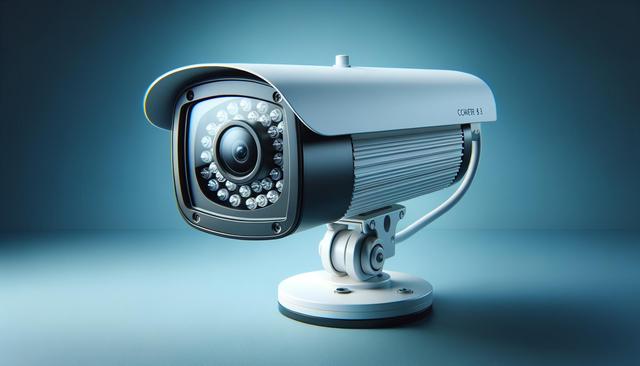Understanding the Role of Security Cameras
Security cameras have become an integral part of modern surveillance systems, both for residential and commercial properties. Their primary function is to monitor and record activity in specific areas, providing real-time or recorded footage that can be used for security purposes. Whether used indoors or outdoors, these devices help deter potential intruders, enhance accountability, and provide valuable evidence in the event of an incident. With advancements in technology, today’s security cameras offer features like motion detection, night vision, and remote access, making them more effective than ever before.
There are various types of security cameras available, including dome cameras, bullet cameras, and PTZ (pan-tilt-zoom) cameras. Each type is suited for different needs and environments. For instance:
- Dome cameras are often used indoors and blend well with their surroundings.
- Bullet cameras are more visible and typically used outdoors to act as a deterrent.
- PTZ cameras are ideal for large areas due to their ability to rotate and zoom.
Choosing the right type of camera depends on factors such as the area you want to cover, lighting conditions, and whether you need the footage to be monitored live or recorded for later viewing.
Benefits of Using Security Cameras
The advantages of installing a security camera system go beyond just deterring crime. They offer peace of mind by allowing property owners to monitor activity in real time or review footage as needed. In households, they can be used to keep an eye on children, pets, or service personnel. In businesses, they help monitor employee behavior, secure sensitive areas, and resolve disputes with video evidence.
Here are some specific benefits:
- Crime prevention: Visible cameras discourage theft, vandalism, and other criminal behavior.
- Evidence collection: Recorded footage can support investigations and legal proceedings.
- Remote monitoring: Many modern systems offer mobile apps for live viewing from anywhere.
- Operational efficiency: Businesses can use footage to improve customer service or workflow.
By enhancing visibility and accountability, security cameras contribute to a safer environment, helping you stay informed and in control.
Choosing the Right System for Your Needs
Selecting a security camera system involves evaluating several key considerations. First, determine the purpose of the installation—whether it’s for general surveillance, crime prevention, or monitoring specific areas. Next, assess the environment. Outdoor cameras need to be weather-resistant and have night vision capabilities, while indoor cameras may prioritize aesthetics and audio features.
Other important factors include:
- Resolution: Higher resolution offers clearer images and better identification.
- Storage: Options include local storage (DVR/NVR) or cloud-based storage.
- Field of view: A wider angle covers more area with fewer cameras.
- Integration: Compatibility with existing systems or smart home devices can enhance usability.
Budget also plays a role, but it’s important not to sacrifice essential features. Opt for systems that provide a balance of performance, reliability, and ease of use.
Installation and Maintenance Tips
Proper installation is key to the effectiveness of any security camera system. Placement should cover all entry points and vulnerable areas while minimizing blind spots. Cameras should be mounted at a suitable height to avoid tampering and ensure a clear field of view. Lighting is another crucial aspect—adequate lighting, or choosing cameras with good low-light performance, ensures usable footage at all times.
Here are some installation best practices:
- Test camera angles before final installation.
- Use secure mounts and weatherproof housings for outdoor units.
- Ensure cables and power sources are protected from damage.
- Regularly clean lenses and check for obstructions.
Maintenance is equally important. Periodically review footage quality, storage status, and firmware updates. Keeping your system in top condition ensures it remains reliable when it matters most.
Legal and Ethical Considerations
Using security cameras comes with responsibilities, particularly regarding privacy and data protection. It’s essential to comply with local laws and regulations, which may vary depending on your location. For example, in some jurisdictions, you must inform individuals that they are being recorded, especially in workplaces or public areas.
Ethical considerations include:
- Respecting the privacy of neighbors and passersby.
- Limiting surveillance to necessary areas, avoiding private spaces like bathrooms.
- Securing stored footage to prevent unauthorized access.
- Using footage only for its intended purpose.
Being transparent about camera usage and safeguarding the data collected not only builds trust but also helps avoid potential legal issues. Always consult local guidelines or legal advisors when installing a surveillance system to ensure compliance.




Leave a Reply